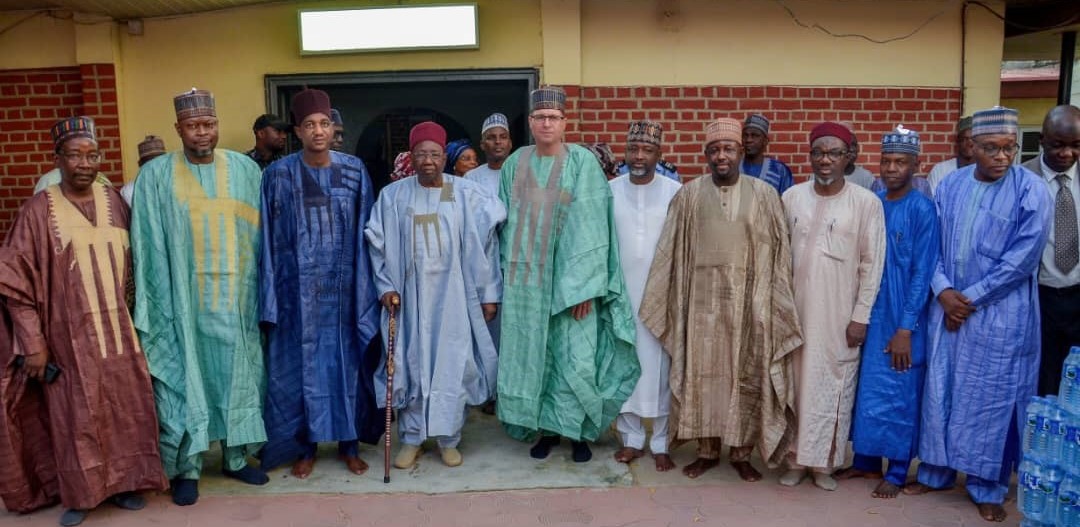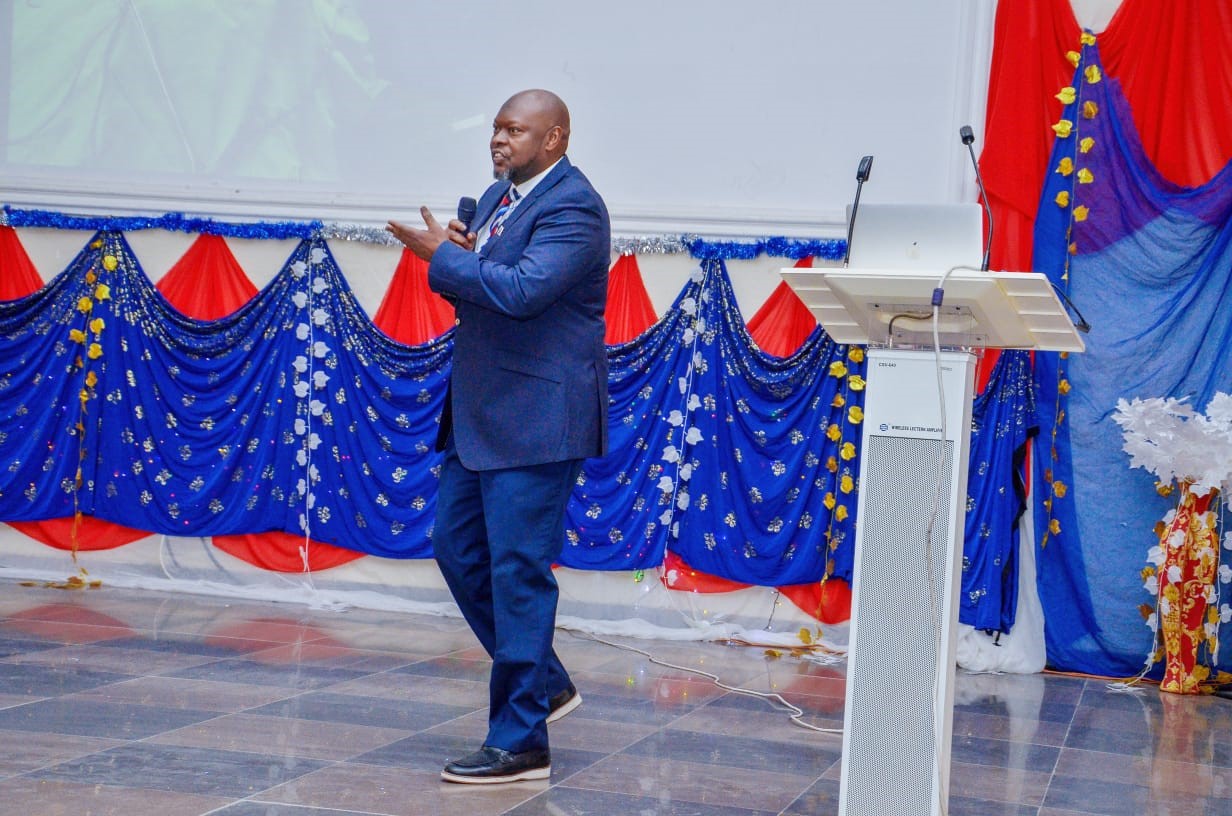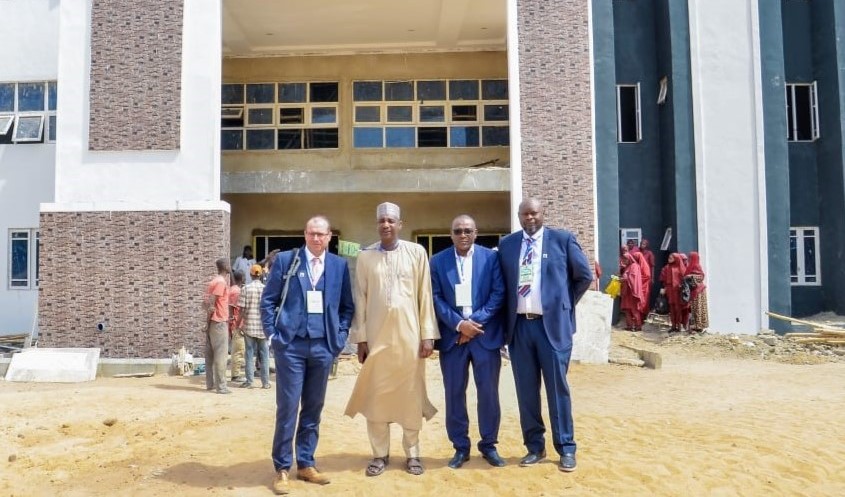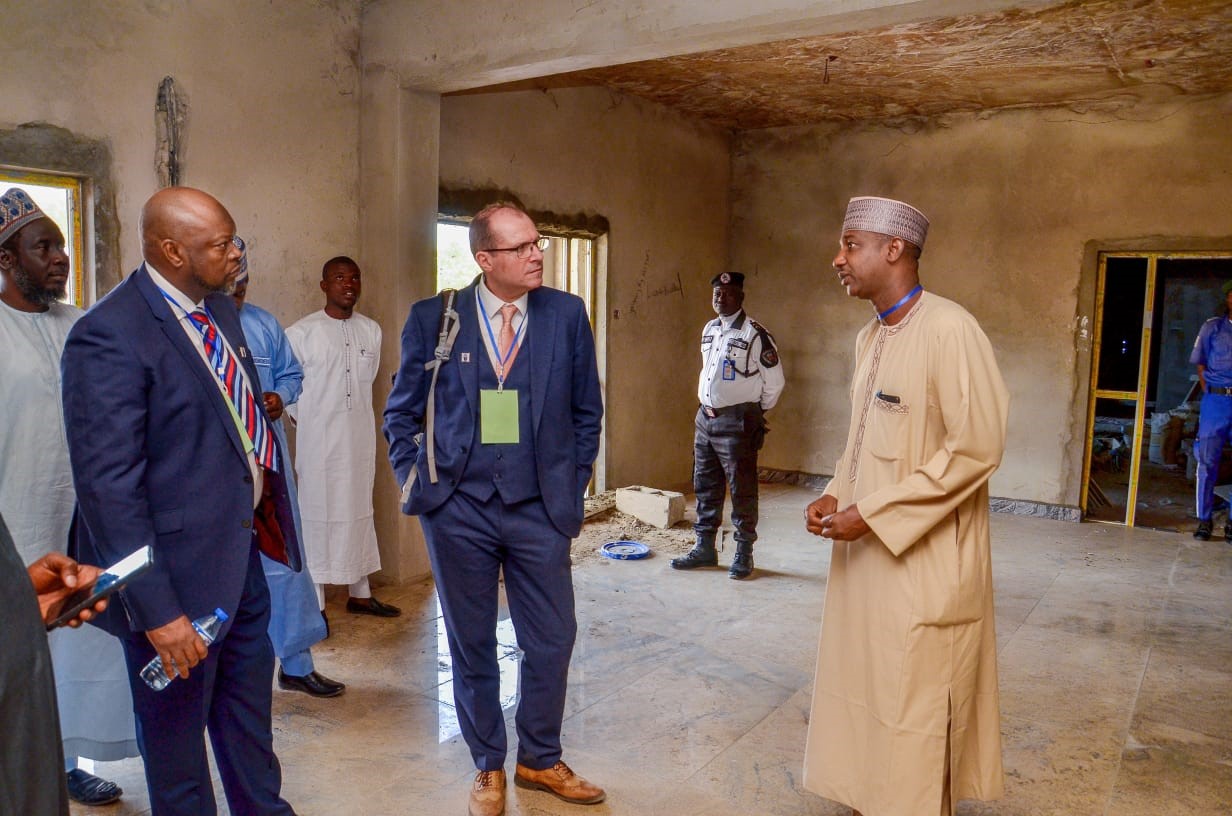Professor Andrew Brodbelt, Consultant Neurosurgeon, tells us about his trip to Africa
Date: 30 May 2024

Earlier this year, staff from The Walton Centre visited a hospital in Nigeria during their building of a new stroke and neuroscience centre. Here is an extract from Professor Andrew Brodbelt's account of the trip.
Dr Baba Aji and I were on our way to Maiduguri, Northeastern Nigeria from Abuja, the capital. We were with Professor Ahmed Ahidjo, an interventional radiologist, and the Chief Medical Officer of a large federal hospital complex in a city of three million people. I was looking over the vast dry land, over which we were flying and reflected on the fact that Ahmed makes use of every opportunity to advance his vision of better healthcare for his city, region, and country. We had arrived the day before and had already been to the Nigerian Department of Health and met the permanent secretaries for health and procurement. Describing a plan for a collaboration between The Walton Centre (WCFT) and The University Hospital of Maiduguri (UHM), Ahmed successfully petitioned the department for funding of a CT scanner, MRI, and Angio suite for his new stroke and neuroscience centre.

I have never been to Africa before. Walking across the tarmac, after disembarking the plane at Maiduguri airport, it was hot, sunny, dry, and dusty. The people were very friendly, and welcoming. We were greeted with a line of people from the hospital welcoming us, then though immigration, and into a waiting car. We followed our security escort, and were driven through the streets of Maiduguri, at speed at times. Vast numbers of cars, small three-wheeled taxis, and bikes were on the road. If there are traffic rules, they involve a lot of horn honking and pushing through at junctions. There were so many people. I felt we were in a living, breathing city. People were in bright colours, with long flowing clothes. There were lots of children about.
The purpose of our journey was to visit the UHM, meet people working there, see their facilities, attend, and present at a one-day symposium, and agree how a collaboration between the two hospitals could work. There was a lot of building work going on, and we toured several of the sites during our visit. The stroke and neuroscience centre came about because Ahmed noted that stroke patients occupied many of the hospital beds. Patients tended to present late, often many days or weeks after symptom onset, with pressure sores and infections. Ahmed wanted stroke patients treated much earlier to improve their care and outcomes. He agreed funding with the federal government for the building. The stroke centre became a stroke and neuroscience centre following Dr Aji’s advice after visiting in 2023. The building is due to be completed later this year. The ground floor is occupied by an emergency stroke admitting unit, outpatient department, radiology department, and ITU with adjacent neurosurgical theatres. There is an educational centre, and 150 ward beds.

We also toured the limb reconstruction centre. Due to the previous insurgency related to Boka Harum, there are a great number of people who have lost arms or legs. The centre provides a complete service from initial fitting, manufacturing, and education on use. There is no funded healthcare provision in Nigeria, and although there are subsidies, a minority of people in Maiduguri can afford healthcare. It costs around $200-300 US dollars (£150-£200) to buy a new leg. There are sometimes subsidies available from charitable donations from wealthy Nigerians which can help with affording costs. Incomes in this area are extremely low, even well-paid doctors will earn only £400 a month, and most people earn much less. Schooling must be paid for, and many must decide on medical care, school for the children, or the essentials for living. An additional issue for the hospital is that the electricity supply regularly cuts out. To counter this problem, Ahmed built a solar farm and has the first Linacs (radiotherapy machines) in Nigeria that run purely on solar power.

As well as touring the facilitates, we had an eventful and busy few days. Dr Aji and I presented at the symposium, we took part in a clinical conference, meeting a patient with a brain tumour and his family, and a patient with headache and a cervical disc prolapse. We were interviewed for a TV documentary, and also by the national press, and appeared on the national news. We met the governor, Prof Babagana Umara Zulum, for dinner, and the Shehu of Borno state. The Shehu is the religious leader for Borno state, and for this last meeting I was sized up and provided with dress robes to wear. I felt this was a great honour, and due in no small part to Ahmed’s influence in the region.
The Walton Centre is currently developing a partnership arrangement with UHM to facilitate cooperation, to include potential educational, research, estate, and clinical collaborations. At the end, we left Maiduguri with new friends and contacts, and a wish to continue to work with them in the future.
- Summary:
Read more